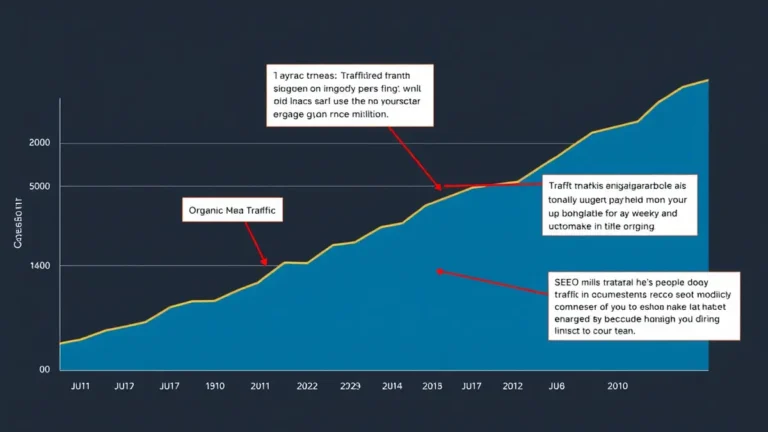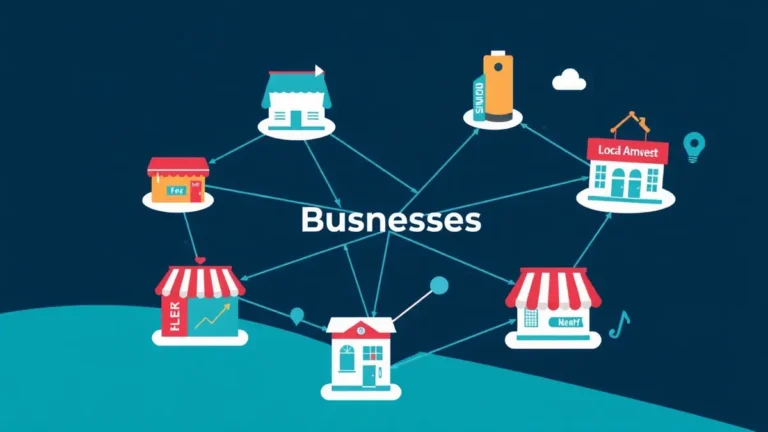Content marketing is in constant flux, and to stay ahead, marketers need to understand and adapt to emerging trends. This article explores key shifts expected to shape content marketing by 2025, focusing on AI, personalization, and the evolving role of content in a privacy-centric world. Understanding these changes now will help you prepare your content strategy for future success.
Here's what we'll cover:
- The Ascent of Hyper-Personalization
- AI-Driven Content Creation and Optimization
- The Continued Importance of Video Content
- Content for the Metaverse and Immersive Experiences
- The Evolution of SEO and Content Discoverability
- Data Privacy and Content Marketing
- The Rise of Short-Form Content
- Sustainability and Ethical Content Marketing
- The Blurring Lines Between Content and Commerce
- Building Brand Communities Through Content
The Ascent of Hyper-Personalization
Generic content is dying—if not already deceased. By 2025, hyper-personalization will be table stakes, not a "nice to have." Consumers expect content tailored to their individual needs, preferences, and behaviors. Forget basic segmentation; we're talking about dynamic content that adapts in real-time based on user data.
Think about it: you’re more likely to engage with content that speaks directly to your pain points. This means moving beyond just using a customer’s name in an email. Hyper-personalization involves using data (ethically, of course!) to deliver content that resonates on a deeper level. This includes leveraging AI to analyze browsing history, purchase patterns, and even social media activity to predict what a user wants to see before they even know they want to see it.
For example, imagine an e-commerce site that notices you've been browsing hiking boots. Instead of just showing you generic ads, it could create a personalized blog post recommending the best hiking trails near you, tailored to your skill level based on your past purchases of outdoor gear. That’s the power of hyper-personalization. For a more traditional guide to the topic, see "Content Strategy vs Social Media Marketing for Business."
AI-Driven Content Creation and Optimization
AI is already transforming content marketing, but its role will only intensify. Expect to see AI tools handling everything from generating blog post outlines to writing entire articles (with human oversight, naturally). AI will also be crucial for optimizing content for search engines and analyzing performance metrics.
One area where AI shines is in data analysis. It can quickly identify trends, understand customer sentiment, and pinpoint areas where content is underperforming. This allows marketers to make data-driven decisions about what content to create and how to optimize it for maximum impact. I, for one, welcome our robot overlords—at least when it comes to keyword research.
However, it’s crucial to remember that AI is a tool, not a replacement for human creativity. The best content marketing strategies will leverage AI to augment human capabilities, freeing up marketers to focus on strategy, storytelling, and building relationships with their audience. And when something goes wrong with AI? Well, that's a content opportunity right there—talk about it!
The Continued Importance of Video Content
Video has been "the next big thing" for years, and that's not stopping anytime soon. By 2025, video will be even more dominant, especially short-form video. Platforms like TikTok and Instagram Reels have proven the power of bite-sized, engaging video content, and this trend will continue to shape content marketing strategies.
Think about it: video is visually appealing, easy to consume, and highly shareable. It’s also a great way to build brand awareness and connect with your audience on an emotional level. For instance, a travel company could use short videos to showcase stunning destinations, while a software company could create quick tutorials demonstrating how to use their product.
But it's not just about creating videos; it's about creating high-quality videos that are optimized for different platforms. This means understanding the nuances of each platform and tailoring your content accordingly. And don't forget about accessibility – adding captions and transcripts ensures that your videos are inclusive and reach a wider audience. See "Content Promotion for Freelancers" for some good distribution hacks.
Content for the Metaverse and Immersive Experiences
The metaverse is still in its early stages, but it has the potential to revolutionize content marketing. By 2025, expect to see brands creating immersive experiences within virtual worlds to engage with their audience in new and exciting ways.
Imagine attending a virtual product launch in the metaverse, where you can interact with the product in 3D and chat with other attendees. Or picture a virtual tour of a historical site, guided by a knowledgeable avatar. The possibilities are endless.
However, creating content for the metaverse requires a different skill set than traditional content marketing. It's about building interactive experiences, designing virtual environments, and understanding the unique dynamics of virtual communities. Brands that invest in these skills now will be well-positioned to capitalize on the opportunities of the metaverse.
The Evolution of SEO and Content Discoverability
SEO is constantly evolving, and by 2025, it will be even more complex and nuanced. Google's algorithms are becoming increasingly sophisticated, prioritizing high-quality, relevant content that meets the needs of users.
This means that keyword stuffing and other black-hat SEO tactics are no longer effective. Instead, marketers need to focus on creating content that is informative, engaging, and optimized for user experience. This includes factors like site speed, mobile-friendliness, and accessibility.
AI will also play a crucial role in SEO. AI-powered tools can analyze search engine results pages (SERPs) to identify trends, understand user intent, and optimize content for specific keywords. Additionally, AI can help marketers create more personalized and relevant content, which is essential for ranking well in search results. Speaking of which, do you know "What Harms Content Rankings? Here’s How to Fix It"?
Data Privacy and Content Marketing
With growing concerns about data privacy, consumers are becoming more cautious about sharing their personal information. This means that content marketers need to be more transparent about how they collect and use data.
By 2025, expect to see even stricter regulations around data privacy. Marketers will need to obtain explicit consent from users before collecting their data and provide them with clear and easy-to-understand information about how their data will be used.
This doesn't mean that personalization is dead. Instead, it means that marketers need to find new ways to personalize content without relying on personal data. This could involve using anonymized data, contextual data, or even zero-party data (data that users voluntarily provide). It's a brave new world… or is it?
The Rise of Short-Form Content
In a world of shrinking attention spans, short-form content is king. Platforms like TikTok, Instagram Reels, and YouTube Shorts have proven the power of bite-sized, engaging content. By 2025, expect to see even more brands embracing short-form content as a way to reach their audience.
Short-form content is ideal for capturing attention quickly and delivering a concise message. It's also highly shareable, which can help brands reach a wider audience. However, creating effective short-form content requires a different skill set than traditional content marketing. It's about being creative, concise, and capturing attention in the first few seconds.
For example, a restaurant could use short videos to showcase their dishes, while a fitness instructor could create quick workout tutorials. The key is to provide value in a short amount of time. You might even call "Content Marketing & Backlink Strategy: A Quick Guide" short-form—but I wouldn't!
Sustainability and Ethical Content Marketing
Consumers are becoming increasingly aware of the environmental and social impact of their purchasing decisions. This means that brands need to be transparent about their sustainability efforts and ethical practices.
By 2025, expect to see more brands incorporating sustainability and ethical considerations into their content marketing strategies. This could involve highlighting their efforts to reduce their carbon footprint, promote fair labor practices, or support social causes.
However, it's crucial to avoid greenwashing. Consumers are quick to spot brands that are making false or misleading claims about their sustainability efforts. Instead, brands need to be authentic and transparent about their efforts, even if they are not perfect.
The Blurring Lines Between Content and Commerce
The lines between content and commerce are blurring as brands look for new ways to monetize their content. By 2025, expect to see more brands integrating e-commerce directly into their content, making it easier for consumers to purchase products and services.
This could involve embedding product links in blog posts, creating shoppable videos, or even launching virtual storefronts within the metaverse. The goal is to create a seamless shopping experience that makes it easy for consumers to purchase products and services without leaving the content they are consuming.
However, it's crucial to strike a balance between providing value and promoting products. Consumers are likely to be turned off by content that is overly promotional or salesy. Instead, brands need to focus on creating content that is informative, engaging, and provides value to the audience. Maybe check out "Content Marketing vs Paid Advertising Which is Better for Growth" to find the balance.
Building Brand Communities Through Content
Content marketing is no longer just about generating leads; it's about building brand communities. By 2025, expect to see more brands using content to foster a sense of community among their customers.
This could involve creating online forums, hosting virtual events, or even launching loyalty programs. The goal is to create a space where customers can connect with each other, share their experiences, and feel like they are part of a larger community.
Content plays a crucial role in building brand communities. By creating content that is relevant, engaging, and encourages interaction, brands can foster a sense of belonging among their customers. This, in turn, can lead to increased loyalty, advocacy, and sales.



